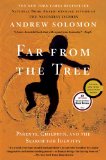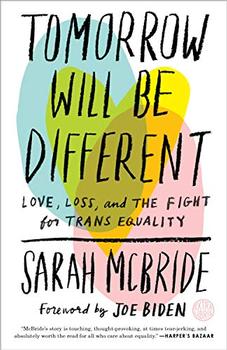Summary | Excerpt | Reading Guide | Reviews | Beyond the book | Read-Alikes | Genres & Themes | Author Bio

Parents, Children and the Search for Identity
by Andrew SolomonFar from the Tree is a masterpiece that will rattle our prejudices, question our policies, and inspire our understanding of the relationship between illness and identity. Above all, it will renew and deepen our gratitude for the herculean reach of parental love.
From the National Book Award-winning author of the "brave…deeply humane…open-minded, critically informed, and poetic" (The New York Times) The Noonday Demon, comes a book about the consequences of extreme personal and cultural differences between parents and children.
As a gay child of straight parents, Andrew Solomon was born with a condition that was considered an illness, but it became a cornerstone of his identity. While reporting on the explosion of Deaf pride in the 1990s, he began to consider illness and identity as a continuum with shifting boundaries. Spurred by the disability-rights movement and empowered by the Internet, communities with such "horizontal identities" are challenging expectations and norms.
Their stories begin in families coping with extreme difference: dwarfism, Down syndrome, autism, multiple severe disabilities, or prodigious genius; children conceived in rape, or who identify as transgender; children who develop schizophrenia or commit serious crimes. The adage asserts that the apple doesn't fall far from the tree, but in Solomon's explorations, some apples fall on the other side of the world.
For ten years, interviewing more than 250 families, Solomon has observed not just how some families learn to deal with exceptional children, but also how they find profound meaning in doing so. An utterly original thinker, Solomon mines the eloquence of ordinary people who have somehow summoned hope and courage in the face of heartbreaking prejudice and almost unimaginable difficulty.
Far from the Tree is a masterpiece that will rattle our prejudices, question our policies, and inspire our understanding of the relationship between illness and identity. Above all, it will renew and deepen our gratitude for the herculean reach of parental love.
Far From the Tree felt, for this reader anyway, not only inspiring and compelling, but also personal because of its inclusive message. "Difference is what unites us," Andrew Solomon says. "While each of these experiences can isolate those who are affected, together they compose an aggregate of millions whose struggles connect them profoundly. The exceptional is ubiquitous; to be entirely typical is the rare and lonely state." Solomon is a champion of and for people with differences, and so, he's a champion for all of us...continued
Full Review
(1582 words)
This review is available to non-members for a limited time. For full access,
become a member today.
(Reviewed by Morgan Macgregor).
One of the stories Solomon tells in Far From The Tree is about Ashley X (the last name is to protect identity), a disabled girl whose story generated a lot of controversy about disability and its treatment.
Ashley X, born in 1997, was diagnosed in infancy with static encephalopathy, a brain disorder that is similar to cerebral palsy. Ashley was labeled "Permanently Unabled," which means that she would remain at infant level, mentally and physically, for the duration of her life. Ashley cannot walk, talk, feed herself, raise her head, or turn over. She can sleep, she can wake, she can breathe, and she can smile. Ashley's parents call her their "Pillow Angel," and dedicate the majority of their days to caring for her in every way - tube-...
This "beyond the book" feature is available to non-members for a limited time. Join today for full access.

If you liked Far From the Tree, try these:

by Sarah McBride
Published 2019
A captivating memoir that will change the way we look at identity and equality in this country.

by A.F. Brady
Published 2018
A razor-sharp debut about a woman who goes so far off the deep end, she might never make it back up…
What really knocks me out is a book that, when you're all done reading, you wish the author that wrote it was a ...
Click Here to find out who said this, as well as discovering other famous literary quotes!